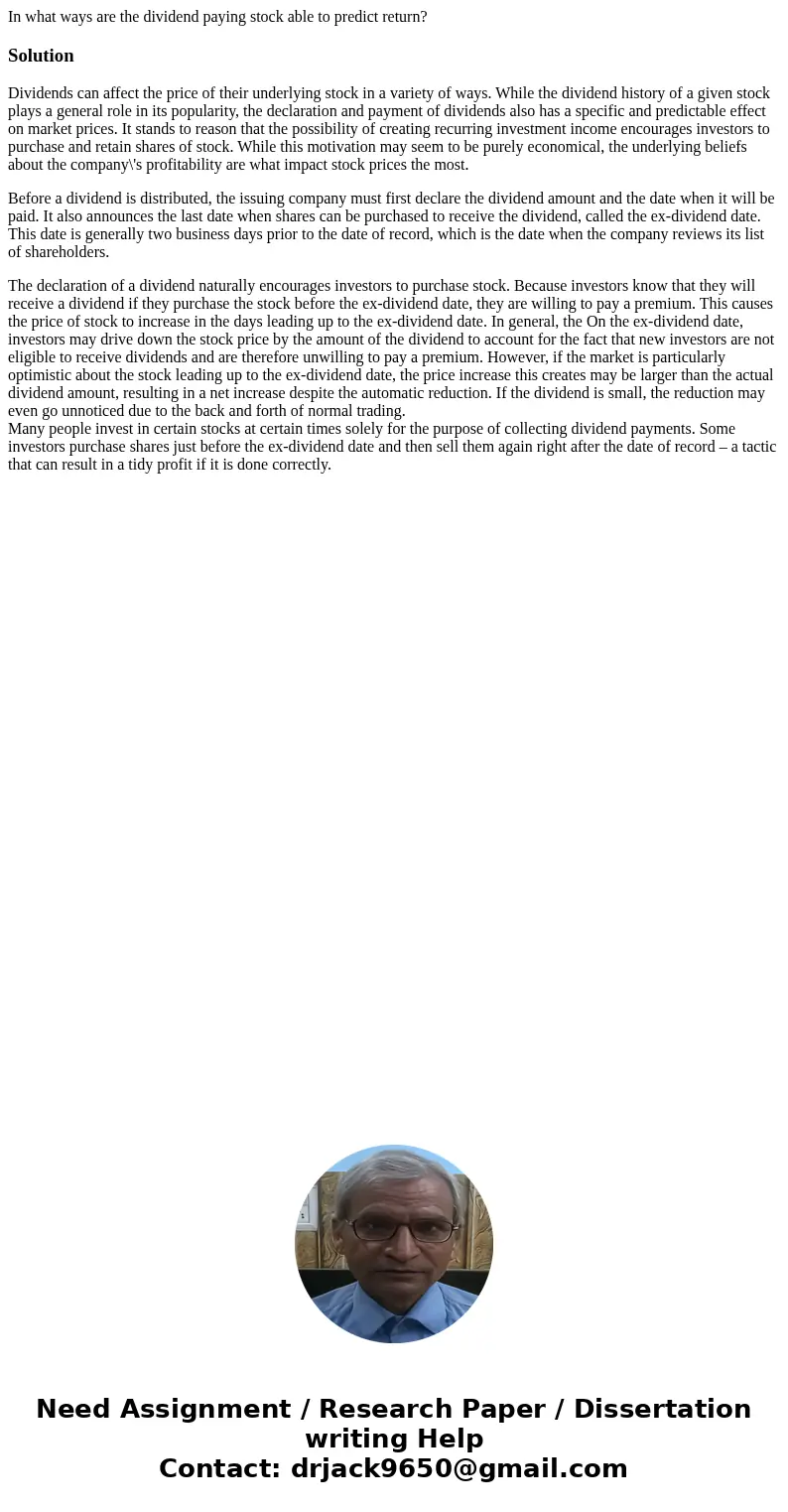In what ways are the dividend paying stock able to predict r
In what ways are the dividend paying stock able to predict return?
Solution
Dividends can affect the price of their underlying stock in a variety of ways. While the dividend history of a given stock plays a general role in its popularity, the declaration and payment of dividends also has a specific and predictable effect on market prices. It stands to reason that the possibility of creating recurring investment income encourages investors to purchase and retain shares of stock. While this motivation may seem to be purely economical, the underlying beliefs about the company\'s profitability are what impact stock prices the most.
Before a dividend is distributed, the issuing company must first declare the dividend amount and the date when it will be paid. It also announces the last date when shares can be purchased to receive the dividend, called the ex-dividend date. This date is generally two business days prior to the date of record, which is the date when the company reviews its list of shareholders.
The declaration of a dividend naturally encourages investors to purchase stock. Because investors know that they will receive a dividend if they purchase the stock before the ex-dividend date, they are willing to pay a premium. This causes the price of stock to increase in the days leading up to the ex-dividend date. In general, the On the ex-dividend date, investors may drive down the stock price by the amount of the dividend to account for the fact that new investors are not eligible to receive dividends and are therefore unwilling to pay a premium. However, if the market is particularly optimistic about the stock leading up to the ex-dividend date, the price increase this creates may be larger than the actual dividend amount, resulting in a net increase despite the automatic reduction. If the dividend is small, the reduction may even go unnoticed due to the back and forth of normal trading.
Many people invest in certain stocks at certain times solely for the purpose of collecting dividend payments. Some investors purchase shares just before the ex-dividend date and then sell them again right after the date of record – a tactic that can result in a tidy profit if it is done correctly.

 Homework Sourse
Homework Sourse